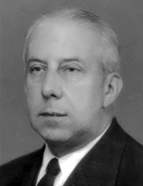

The last – a comment on the Marquis of Alorna ’ s booklet on the Junqueira prisoners – is a libel against Pombalism, Vintismo , Chartism and the Republic, as well as against Freemasonry and Jacobinism and their roots and supporters. The content of these comments signalled, in Caetano Beirão ’ s opinion, the counter-revolutionary and uncompromising spirit of the author and his allies against changing the traditional order and principles that had always identified Portugal. Aware of what he had always heard being advocated, he made it his own, encouraging its adoption: ‘Take the side of our greatest, against the side of our fathers’ ( Idem , p. 183).
An avowed monarchist in heart and soul, he dedicated his life to the defence of the monarchy with unwavering loyalty. A beloved disciple of Alfredo Pimenta, he accompanied him as a militant of Lusitanian Integralism, known for its anti-liberal, anti-parliamentary, nationalist , and monarchist orientation. The same ideology led him to accept the position of director of the Juventude Monárquica de Lisboa [Monarchist Youth of Lisbon] and to join the Board of Directors of Acção realista Portuguesa [Portuguese Realist Action] . His desire to take a direct and active part in political life led him to the National Assembly, where he was a member of parliament between 1949 and 1957. He was present at the sessions of the 5 th and 6 th legislatures, elected respectively for the Lisbon and Beja constituencies, having been chosen in one and the other for the Committee on National Education, Popular Culture , and Spiritual Interests. His parliamentary speeches were few and not very relevant, although they were significant in terms of his mindset and the environment within which he was ideologically integrated. He paid tribute to D. Carlos, Alfredo Pimenta , and António Cabral on the occasion of his 90 th birthday and when he died. He expressed his displeasure at the fact that 8 December was not a public holiday, given the significance of the event, and took the opportunity to express his opinion on the criteria to be followed for choosing it. In his view, public holidays were exponents of national unity and, as such, should enshrine it, removing dates representing fratricidal struggles from the calendar of the state committed to safeguarding it. Thus, it was justified that 24 August and 8 May should be celebrated, but not 5 October and 31 January ( Diário das Sessões [Diary of sessions] , 10.12.1949, pp 34-36).
This work is financed by national funds through FCT - Foundation for Science and Technology, I.P, in the scope of the projects UIDB/04311/2020 and UIDP/04311/2020.
